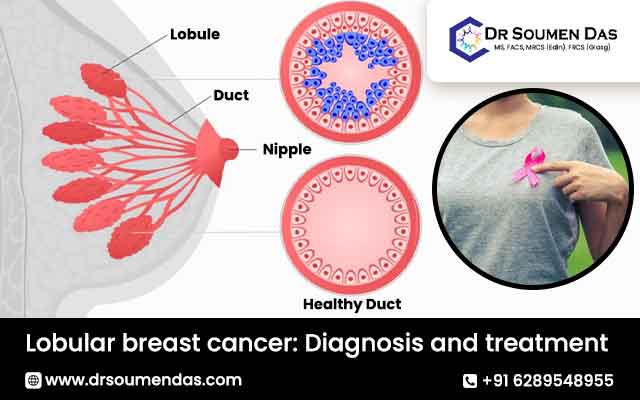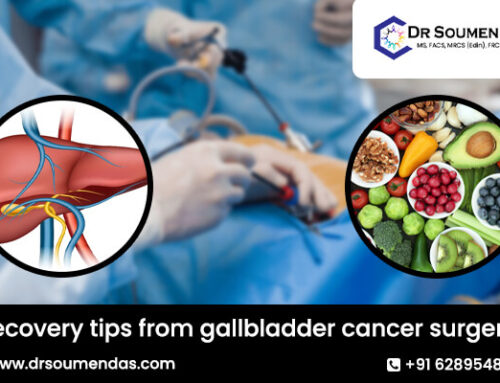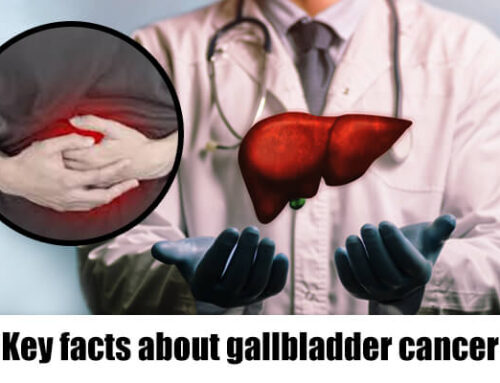Lobular breast cancer is a subtype of invasive breast malignancy. Although it is less common, it presents unique diagnostic and treatment challenges. Below, the best breast cancer doctor in Kolkata will delve into how the condition is diagnosed and the available treatment options.
Diagnosis of Lobular Breast Cancer:
- Clinical Examination and History: According to the best breast cancer doctor in Kolkata, the diagnostic process often begins with a thorough physical examination and gathering the patient’s medical history. Any noticeable changes, lumps, or irregularities in the breast are noted during this evaluation.
- Imaging Studies: Mammography, ultrasound, and magnetic resonance imaging (MRI) are instrumental in detecting abnormalities within the breast tissue. Mammography remains a standard screening tool, but sometimes, additional imaging like MRI might be needed for accurate diagnosis, especially in cases of dense breast tissue or when multiple lesions are suspected.
- Biopsy: A biopsy is the definitive step to confirm the presence of cancer. A tissue sample is taken from the suspicious area and sent to a pathologist for analysis. In lobular breast cancer, the biopsy helps determine the type of cancer cells present and their specific characteristics.
- Histological Examination: The tissue obtained from the biopsy is examined under a microscope to evaluate the appearance and structure of the cancer cells. Lobular breast cancer cells have a distinctive appearance, appearing in a single-file pattern.
- Hormone Receptor Status: Hormone receptor status testing is crucial to determine if the cancer cells have receptors for estrogen and progesterone. Hormone receptor-positive tumors often respond well to hormonal therapies.
- HER2 Status: HER2 testing is done to identify if the cancer cells overexpress the HER2 protein, which helps determine targeted treatment options.
Treatment of Lobular Breast Cancer:
- Surgery: Surgery is a primary treatment for lobular breast cancer. Options include lumpectomy (removal of the tumor and a small margin of surrounding tissue) or mastectomy (removal of the entire breast). The choice depends on factors like the size and stage of the tumor, and the patient’s overall health, says the best breast cancer surgeon in Kolkata.
- Radiation Therapy: Radiation therapy may follow a lumpectomy to destroy the remaining cancer cells and lower the risk of recurrence. It involves targeted radiation to the affected breast.
- Chemotherapy: Chemotherapy may be recommended to destroy cancer cells that might have spread beyond the breast. The choice of drugs and the treatment duration depend on the stage and aggressiveness of the cancer.
- Hormonal Therapy: Hormone receptor-positive lobular breast cancer may be treated with hormonal therapies like tamoxifen or aromatase inhibitors. These drugs help block the effects of estrogen, which stimulates the growth of cancerous cells.
- Targeted Therapy: Targeted therapies like trastuzumab (Herceptin) may be used for HER2-positive lobular breast cancer. These drugs specifically target the HER2 protein, inhibiting cancer cell growth.
Early detection and a multidisciplinary approach have a significant role in effectively treating lobular breast cancer. Regular screenings, self-examinations, and timely medical consultations are vital steps in the fight against breast cancer. If you suspect any abnormalities in your breast health, reach out to the best breast cancer doctor in Kolkata to discuss your concerns.






